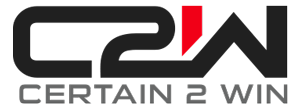It’s hard enough to get a 20 mule team harnessed and pulling together down a familiar trail, but when the trail is new or, worse, there is no trail at all things can go south quickly. And if we’re dealing not with harnessed mules but with sentient, self-regarding human beings the team can even more quickly dissolve into conflict and costly chaos, thus the classic shout, “every man for himself!” (pardon the archaic gender). Since conflict and discord are facts of life it’s to our advantage to minimize both for the benefit our team. Everyone says, “amen” to that proposal. But realizing and implementing conflict avoidance and keeping things running on greasy wheels is neither simple nor easy. In any arena of competition be it fun and simple or deadly and complex one thing is certain: uncertainty is inevitable. It’s a fair question to ask, “how does one go about dealing with the unanticipated and unforeseen?”.
Decades ago a business opportunity presented itself, and I grabbed it like the handrail of a moving freight train. The stars had aligned, the cards had fallen in my favor, and it was one of those sure things. Never mind the fact that I knew little to nothing about the business. I’m a quick study and knew I could hire experienced people, and, after all, how hard could it be to perpetuate an already successful venture? With my spurs on and my boots shined I was ready to ride the restaurant rocket. The clincher was the location. It was within a hotel which for quite some time had been averaging ninety percent occupancy, a veritable built-in clientele from the southeast Texas petrochem business, an economic rock of Gibraltar. Anyone over 50 has by now probably guessed where this is going. Where it went was from about $120 a barrel to about $30, and it went there faster than the proverbial New York minute, and no one had seen anything like in a generation. Almost overnight it became an economic bloodbath. As the price of oil plunged so did the local economy in general as did specifically the hotel occupancy and my bank balances. I was in a building with nothing higher than two floors from which to jump. If it had had a third floor or higher I most likely would’ve landed on someone’s repossessed bass boat or RV. The unthinkable got thunk.
Humans at the top of the food chain should be able to know and anticipate such events and just “figure things out better”, right? But history (like the stability of world crude oil prices) has proven otherwise. Two brilliant minds in the early twentieth century overturned our self-assured belief in the infallibility of rational human thought, our blind faith in being able to just “figure things out”. They were Werner Heisenberg in 1927 and Kurt Godel in 1931, the former a theoretical physicist, the latter a mathematician and logician. Since just explaining how to tie a square knot poses a challenge to me, simplifying the world-altering work of these two brilliant scientists is above my pay grade. But I’ll give it a shot by saying Heisenberg’s “uncertainty principle” and Godel’s “proof” both scientifically confirmed there are some things we cannot know or finitely measure. Proceeding forward from their work, an indication of our intelligence is our ability to realize as Fritjof Capra wrote, “The universe is no longer seen as a machine made up of a multitude of objects, but has to be pictured as one indivisible dynamic whole whose parts are interrelated”. In other words, instead of building our smart castles on bits and pieces of what we think are facts, we exist in a world of organic, ever-changing systems that can’t be nailed down no matter how hard we swing our hammers of rationality. Things are in a state of constant change, and even “scientific facts” are slippery. Therefore, amidst ever-changing systems/environments winners are those able to most nimbly revise their perspective. Further adding to the game challenge comes this clincher: we cannot make accurate observations and evaluations of a system if we are inside or a part of that system. Dang, that makes the game even harder! We can’t get the complete and clear picture when we’re fighting/competing inside a closed box. So, imagine we’re in a giant aquarium tank wearing scuba gear (no bubbles) and playing an Olympic level game of hide and seek tag with another swimmer. They are “it” and chasing us, looking to find and tag us. We avoid getting tagged by hiding in and swimming among a network of artificial coral, a slo-mo game of tag inside a clear-walled tank. All either of us can see is through the limited view of our diving masks. Thus, the clear-walled water tank becomes “the system” and we’re both in it. But what if we were able to stand outside the clear walls and observe both ourselves and the other swimmer at the same time? Our perspective would be so enhanced we could anticipate and respond to the other swimmer’s every move and quickly counter it. We’d easily win the game and take home the gold medal. Equally so, in the arena of competition, business or otherwise, the advantage will always be with whoever is most able to command an objective view from outside the game box. And without ceasing they quickly process new bits and pieces of information to reevaluate what they are observing. It is an inevitable law of competitive life that unanticipated change will occur, even blindside us like a $90 out-of-the blue drop in oil prices. Per Boyd’s venerable OODA loop: who wins or even remains in the game will be determined by who constantly and more quickly observes (from outside the box), re-orients (adapts), decides, and acts. Equally important, they never tag themselves by climbing back into the box and smugly closing the lid because he who thinks the game is over becomes the loser. Change may throw us for a loop, but it doesn’t have to keep us out of the loop.
Originally published in Beaumont Business Journal, Heat And Humanity Column


